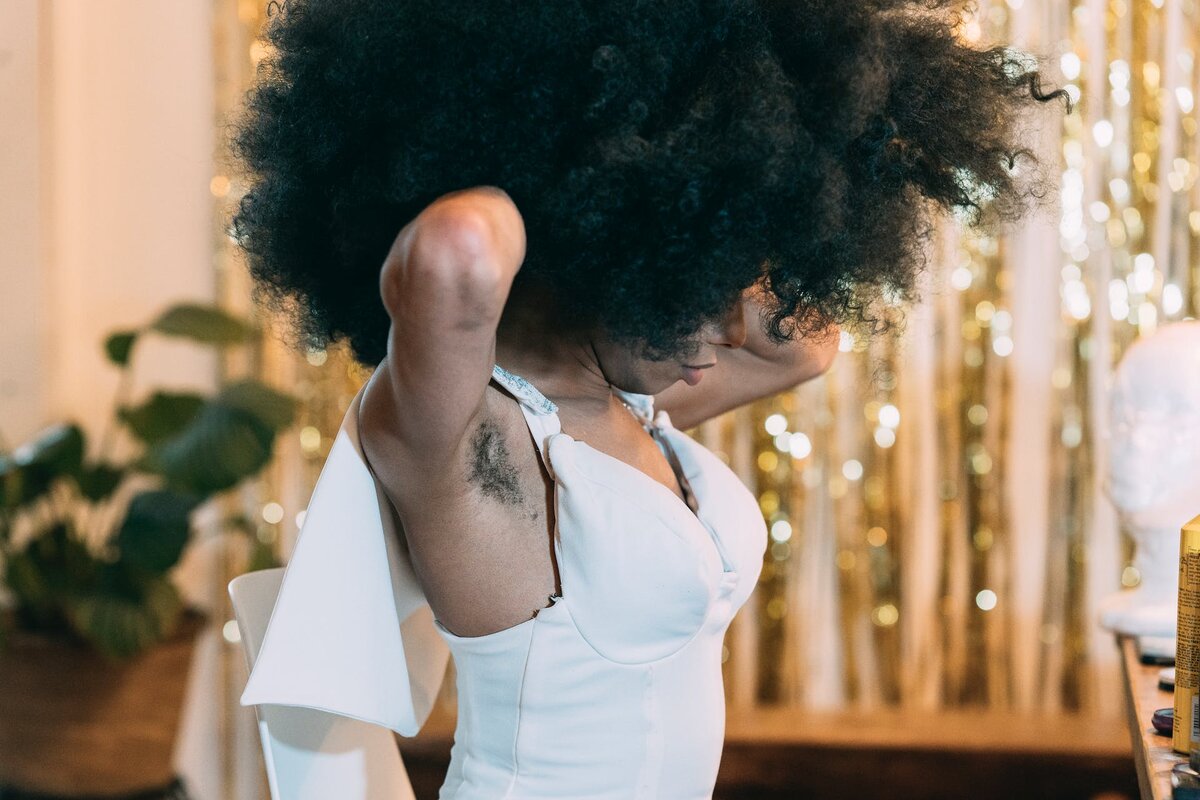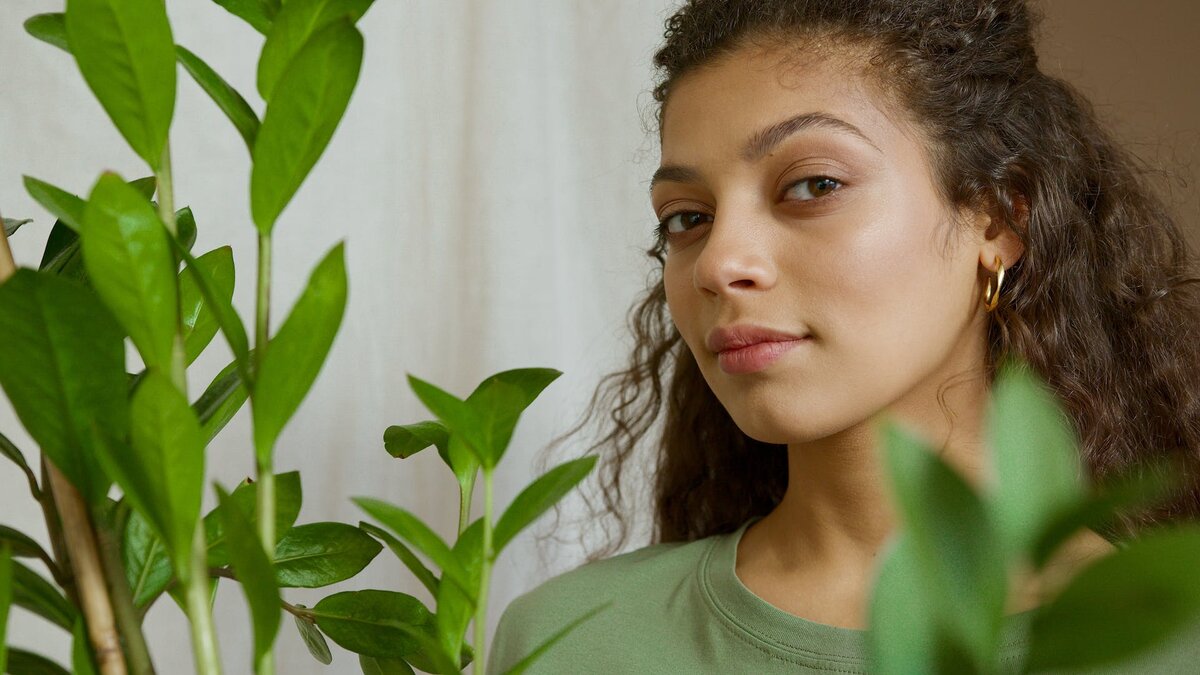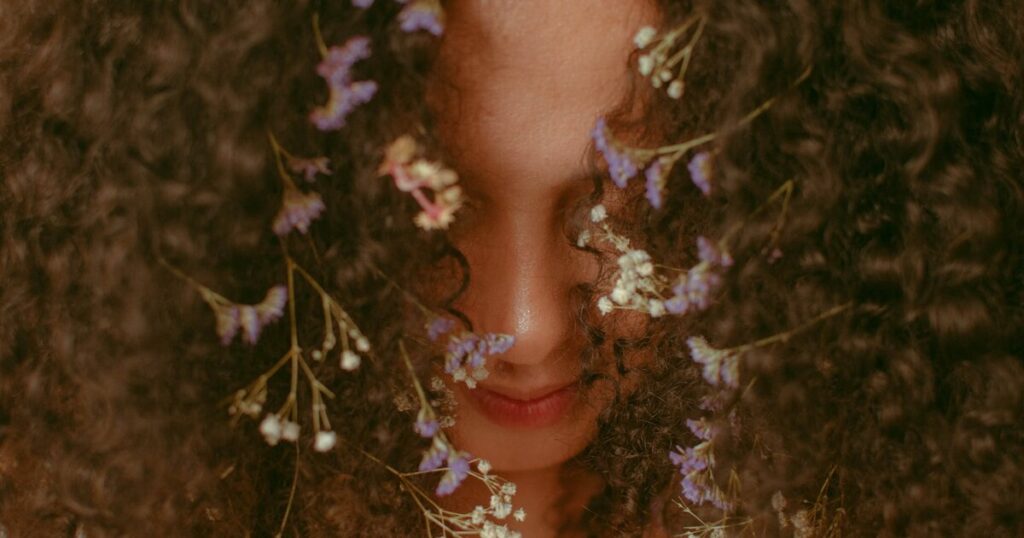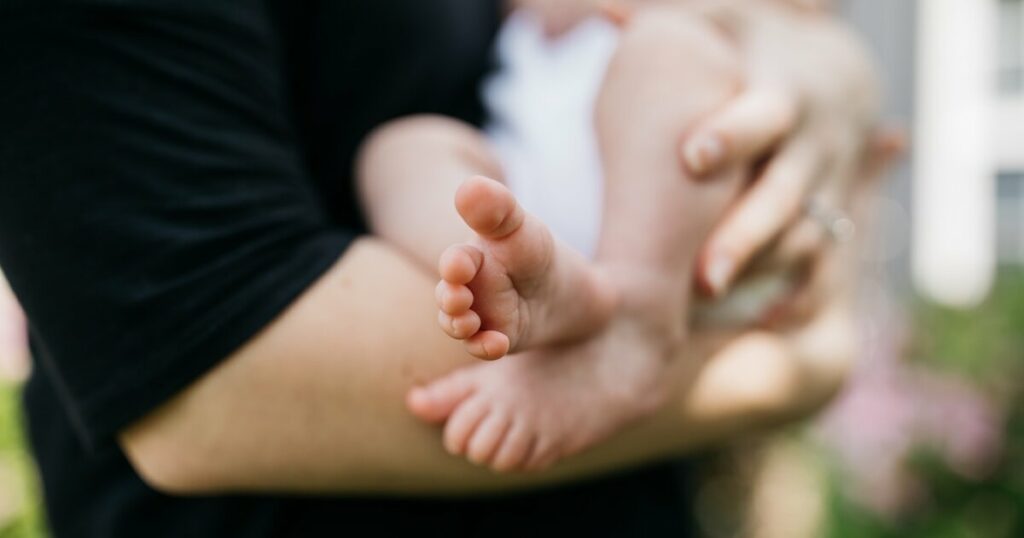Africa, a continent rich in biodiversity, holds a treasure trove of natural remedies, including potent herbs that nurture hair growth and health. For generations, these botanicals have been harnessed for their powerful properties, offering a holistic approach to hair care that’s both effective and steeped in tradition. In this exploration, we delve into the effectiveness of African herbs for hair growth, spotlighting the natural ingredients that have been aiding in the quest for luscious, strong locks.
On this page:
The Cultural Roots of Hair Care in Africa
In many African communities, hair is not just a matter of beauty, but also of social status, spirituality, and heritage. The way hair is styled and cared for can communicate a person’s family background, tribe, marital status, and even their occupation. This deep cultural significance has led to the development of a rich variety of natural hair care practices and products, including the use of herbs for hair growth.
African women, in particular, have been the guardians of hair care knowledge, passing down recipes and techniques from mother to daughter. These recipes often include a mix of locally sourced herbs, oils, and butters. For instance, African herbs for hair growth such as Chebe powder, which hails from Chad, are renowned for their hair strengthening and moisturizing properties. Women in West Africa traditionally use it to achieve long, healthy hair.
The use of herbs is also tied to the African philosophy of Ubuntu, which emphasizes a sense of community and the belief that one’s well-being is connected to the well-being of others. This philosophy extends to hair care, where the sharing of herbal remedies and hair care methods strengthens community bonds and maintains cultural identity.
It’s important to note that these traditional practices are not just about aesthetics; they also embody a holistic approach to health. The repeated use of African herbs for hair growth showcases their additional medicinal properties, including nurturing the scalp and promoting overall wellness. This holistic perspective reflects an understanding that healthy hair is a sign of a healthy body and spirit.

The cultural roots of African hair care are thus a tapestry of beauty, community, and health, interwoven with the use of natural herbs that have stood the test of time.
Top African Herbs for Hair Growth You Should Know
Chebe Powder: Originating from Chad, Chebe powder is a combination of cherry seeds, resin tree sap, clove, lavender croton, and other ingredients. It is credited for the long, healthy hair of the Chadian women. This blend of African herbs for hair growth is believed to moisturize and condition the hair, thereby minimizing breakage and promoting hair retention.
Shea Butter: Widely used across the continent, shea butter is extracted from the nuts of the shea tree found in West Africa. Packed with vitamins A and E, shea butter exemplifies how African herbs for hair growth, with their excellent moisturizing properties, can strengthen hair follicles.
Amla Oil: While not native to Africa but widely adopted in its hair care practices, Amla oil, derived from the Indian gooseberry, is rich in vitamin C and antioxidants. African herbs for hair growth like Amla oil help to prevent hair loss, stimulate growth, and maintain overall scalp health.
Rosemary Oil: Rosemary oil has been used by various cultures, including in Africa, for its ability to stimulate blood circulation to the scalp. Improved blood flow can nourish hair follicles and encourage growth.
Castor Oil: Produced from the seeds of the African castor oil plant, this oil is known for its growth-boosting abilities. It is rich in ricinoleic acid, which helps to increase blood circulation to the scalp and improve hair growth.
Peppermint Oil: African herbs for hair growth include ingredients like peppermint oil, known for its tingling sensation that invigorates the scalp and promotes blood flow.
While these African herbs and oils have been traditionally used to support hair health and growth, it’s important to note that results can vary, and their effectiveness is often based on anecdotal evidence. Always perform a patch test to ensure you do not have an adverse reaction when trying new products.
Incorporating Natural Herbs for Black Hair into Your Routine
To harness African herbs for hair growth, start by creating a nourishing hair oil infused with natural ingredients like Chebe, Fenugreek, and Amla. Simply add a few tablespoons of dried herbs to a cup of a carrier oil such as coconut or olive oil, and let the mixture sit for a few weeks, shaking occasionally. Once infused, strain the oil and apply it directly to your scalp and hair, massaging gently to stimulate circulation.
Another way to harness the power of these herbs is by making a hair rinse. Boil water and pour it over a blend of African herbs for hair growth such as Rooibos or Shikakai, allowing them to steep as you would a tea. After it cools, use the strained liquid as a final rinse after shampooing to strengthen follicles and add shine.
For a more intensive treatment, you can create a hair mask by mixing powdered African herbs with a bit of water or aloe vera gel to form a paste. Apply this African herbs for hair growth paste to your scalp and hair, leave it on for about 30 minutes, then wash out thoroughly. This can help to soothe the scalp, reduce breakage, and ensure that your hair is getting the full benefit of the herbs’ properties.
Remember, consistency is key when using African herbs in your hair care routine. For the best results, apply your African herbs for hair growth treatment at least once a week. And while these herbs are powerful, they work best when complemented by a healthy diet and proper hair care practices, such as regular trims and avoiding excessive heat styling. By incorporating these natural treasures into your regimen, you’re not just nurturing your hair—you’re also embracing a piece of African hair care wisdom that has been passed down through generations.
Maximizing Hair Growth with African Flower Buds for Hair Growth
Firstly, consistency is key. Just like with any hair care regimen, you need to use these herbs regularly to see results. Set up a routine where you apply treatments with African herbs for hair growth at least once or twice a week.
Before applying any treatment, always start with a clean scalp to ensure maximum absorption. Use a gentle shampoo to remove any build-up that could prevent the herbs from penetrating your hair follicles. When creating a mixture with herbs such as Chebe powder, fenugreek, or aloe vera, ensure that it has a consistency that is easy to apply to your hair and scalp.

After applying an herbal treatment, cover your hair with a plastic cap and wrap it with a warm towel to create a gentle heat. This heat helps to open up the hair follicles, allowing the nutrients from the herbs to be absorbed more effectively. Leave the treatment in for at least 30 minutes before rinsing it off.
Regularly massage your scalp with African herbs for hair growth to improve blood circulation and help nutrients reach the hair follicles more efficiently. A gentle massage for about five minutes daily can make a significant difference in hair growth.
Lastly, pay attention to your overall diet and health. Hair growth is not only about external treatments; it’s also about what you put inside your body. Make sure you’re eating a balanced diet rich in vitamins and minerals that support hair growth.
Remember, while African herbs can be powerful, they work best when used as part of a holistic approach to hair care. With patience and diligence, you can maximize your hair growth potential using the treasures that African herbal traditions have to offer.
Potential Side Effects and How to Avoid Them
Some individuals may experience an allergic reaction to certain herbs, manifesting as itching, redness, or a rash on the scalp. To avoid such reactions, it’s wise to perform a patch test with natural herbs for black hair before fully integrating them into your hair care routine. Apply a small amount of the herb or oil to your inner arm and wait 24 hours to see if there’s an adverse reaction.
Overuse of certain herbs might also lead to scalp dryness or irritation. To prevent this, ensure you follow recommended usage guidelines and dilute concentrated oils with carrier oils such as coconut or olive oil. If dryness occurs, reducing the frequency of application can help restore balance.
Furthermore, some African herbs can interact with medications or medical conditions. For example, rosemary, often praised for its hair growth properties, may not be suitable for individuals with high blood pressure or those who are pregnant. Consulting with a healthcare provider before using herbal remedies can help avoid such complications.
Lastly, purity is crucial. Contaminated African flower buds for hair growth can lead to unexpected side effects. Purchase herbs from reputable sources and opt for organic options when available to ensure you’re using high-quality ingredients free from harmful additives.
By being informed and cautious, you can enjoy the hair growth benefits of African herbs while minimizing the risk of side effects.
The Future of Hair Care with African Herbs
As we’ve explored the potency and cultural significance of African herbs for hair growth, it’s clear that these natural treasures hold a promising future in hair care. Their ability to nourish the scalp, strengthen strands, and boost growth has been revered for generations. As more people seek holistic and sustainable beauty solutions, the wisdom of traditional African herbal hair care continues to gain recognition. Embracing these time-honored ingredients could not only transform your hair health but also support the preservation of indigenous knowledge and practices. The future is bright as we continue to uncover and harness the full potential of African herbs, ensuring that the legacy of natural hair care thrives for years to come.



